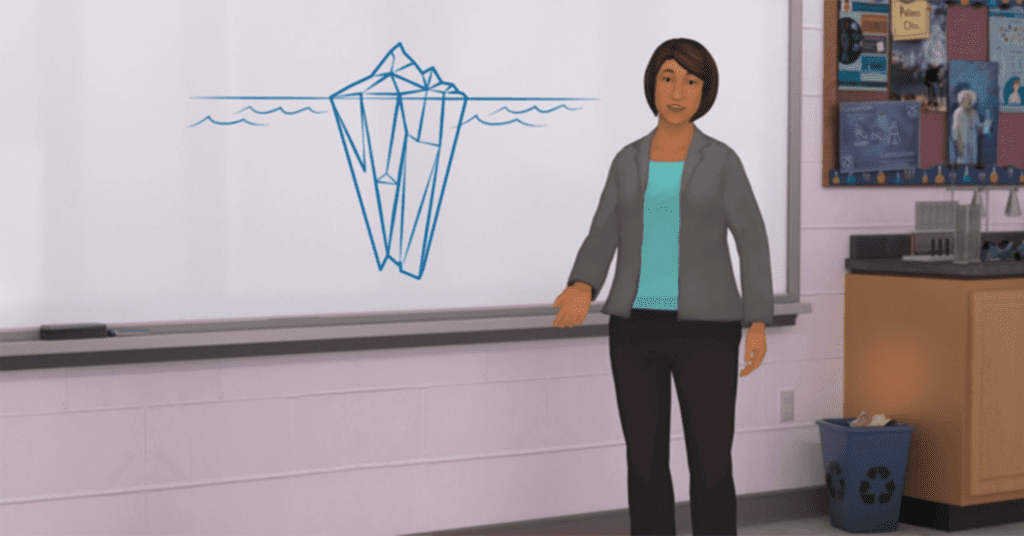Cultivating Resilience Podcast Summary: Responding to Trauma-impacted Communities
Kognito was featured in a recent episode of the ‘Cultivating Resilience’ podcast series hosted by career and leadership coach Jeff Ikler, Dr. Christine Mason, Executive Director of the Center for Educational Improvement, and Jesse Kohler, Executive Director for the Campaign for Trauma Informed Policy and Practice. This series explores how childhood trauma impacts student well-being, cognition, and academic success. In Episode 20: “Responding to Trauma-Impacted Communities,” Kognito’s Jennifer Spiegler, SVP of Strategic Partnerships was joined by Janet Pozmantier, a behavioral health consultant, to address the trauma that Houston teachers and students experienced after Hurricane Harvey. They discuss the creation of the interactive learning experience, the importance of trauma-informed training, and how lessons from Hurricane Harvey directly apply to how we’re managing the pandemic today.
Below are a few key topics discussed in the episode. Listen to the full episode on the podcast website, Apple Podcasts, Spotify, or wherever you listen to podcasts.
Students and teachers have experienced trauma and need support
After Hurricane Harvey, leaders went to work right away to support children. But when schools reopened, it immediately became apparent that teachers needed help. They were rebuilding their classrooms while also rebuilding their own homes as many were displaced, all while supporting their students and their own families.
Trauma may manifest itself in the classroom long after it is experienced
Janet recalls that it wasn’t until one year after Harvey that trauma really started affecting student behavior. This may be because once students’ immediate needs were met—food, shelter, etc.—they felt “safe” and began experiencing the mental and emotional effects of the natural disaster.
Poor behavior signals something happening beneath the surface
As we learn in Kognito’s Trauma-Informed Practices for K-12 Schools simulation, virtual coach Jackie describes how signs of trauma are like an iceberg. Teachers are only seeing a small fraction of what’s actually happening.

Virtual coach Jackie describes how signs of trauma are like an iceberg.
Signs of trauma can look different on everyone, and teachers need training to learn how to identify them
Some students exhibit external behaviors—hitting, acting out, etc. Others may turn inward and be disengaged. While students who exhibit external negative behaviors are recognized often because it’s disturbing in the classroom, students who internalize their trauma may be experiencing significant anxiety and depression that needs to be addressed.
Our simulation, Trauma-Informed Practices for K-12 Schools, helps teachers identify signs of trauma using a variety of scenarios with virtual students.
Mental and emotional wellness is essential to learning
Leaders like Jennifer and Janet have been advocating this truth for many years, but there’s recently been a great awakening to its reality following the effects of the COVID-19 pandemic. Social emotional learning (SEL) has now become a top priority for districts and schools across the country.
Kognito’s simulation helps teachers recognize and address trauma in the classroom
Using evidence-based techniques, Kognito’s simulation builds educator awareness of the impact of trauma and teaches effective ways to respond to students who may be experiencing distress as a result of a traumatic experience.
“We were able to reach over 80,000 educators in the greater Houston area within a two-and-a-half-year period … and the evaluation results were outstanding. The educators learned about trauma, they learned how to respond, they increased their confidence level, and several of them indicated that they actually were able to use the information immediately to help students who indicated they might be suicidal,” Janet said. “It was one of those evaluations that you were like, ‘Whoa, this is amazing!’ You don’t usually see such an incredible turnaround in people. That’s how amazing they [the simulations] are.”
Listen to the full episode now
Listen to Episode 20 of the Cultivating Resilience Podcast: “Responding to Trauma-Impacted Communities” on the podcast website.
Learn more about the trauma-informed practices simulation
Explore Trauma-Informed Practices for K-12 Schools, the interactive learning experience discussed in the podcast episode, at Kognito.com.
